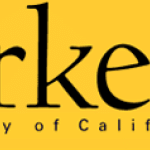- Industri: Education
- Number of terms: 4017
- Number of blossaries: 0
- Company Profile:
Support structure in animals, against which the force of muscles acts. Vertebrates have a skeleton of bone or cartilage; arthropods have one made of chitin; while many other invertebrates use a hydrostatic skeleton, which is merely an incompressible fluid-filled region of their body.
Industry:Biology
In trilobites, the posterior division of the body, formed by fusion of the telson with one or more posterior pleurae.
Industry:Biology
In mammals, a tissue formed within the uterus through which nutrients are passed from the mother to the embryo (and later the fetus) and its wastes are removed. It is analogous to the protective membranes in the egg of other amniotes. placental n. A mammal that gives live birth to well-developed young that have prolonged embryonic development within the mother’s uterus. Marsupial mammals also have a placenta, but the embryo spends less time developing in the uterus before birth. Placentals include animals as diverse as humans, elephants, dogs, and mice.
Industry:Biology
